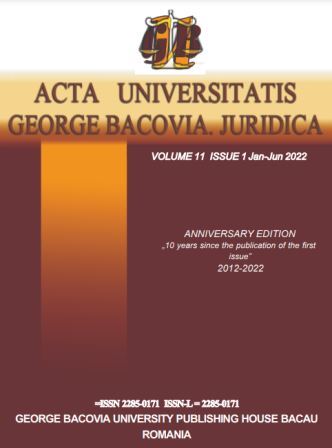Aspecte teoretice și practice ale exercitării apelului în materie civilă
Theoretical and practical aspects in carrying out an appeal in civil lawsuits
Author(s): Gheorghe DuracSubject(s): Law, Constitution, Jurisprudence, Criminal Law
Published by: Editura Universităţii George Bacovia din Bacău România
Keywords: civil lawsuit; remedies at law; legal restrictions; appeal; proceedings;
Summary/Abstract: The activity of distribution of justice cannot be limited to a single degree of jurisdiction. As such, there is a need for the legal activity to be subject to restrictions, in order to avoid any potential errors as well as to prevent bias or abuse. Restrictions from higher courts guarantee judgment. Judgment in civil lawsuits occurs in two stages: judgment in the trial court and judgment within the remedies at law. Judgment within the remedies at law may occur, in its turn, in an ordinary stage and, in some cases, an extraordinary one. The classification of ordinary and extraordinary remedies at law is based on the principle of the double degree of jurisdiction, respectively the stage of the contested decision. Ordinary remedies at law are part of the usual or normal development of a civil lawsuit. Their object consists of rulings delivered in the trial court (sentences), meaning non-final retributions. Practically, an ordinary remedy at law can be exerted by any party involved in the lawsuit, to the extent to which this party considers that the ruling is unfair. We must mention that currently, our legislation in civil matters regulates a single ordinary remedy, the appeal. In the present study, we aim to analyse the legal nature of this remedy at law and the way in which the appeal judgment takes place, stressing the peculiarities of legal restrictions within this stage of civil lawsuits.
Journal: Acta Universitatis George Bacovia. Juridica
- Issue Year: XI/2022
- Issue No: 1
- Page Range: 317-348
- Page Count: 32
- Language: English, Romanian

